Enhancing Human Intelligence Through Neural Brain Implants
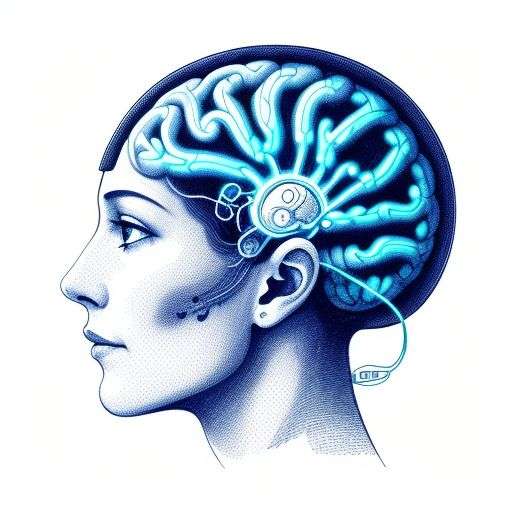
Enhancing human intelligence through neural brain implants is at the forefront of the AI revolution. These innovative technologies have the potential to transform human potential, taking us into the age of Humanity 2.0. By integrating neural brain implants, individuals can experience a significant enhancement in cognitive abilities and overall brain function.
The concept of neural brain implants opens up a world of possibilities. From enhancing memory retention to boosting learning capabilities, these implants have the power to revolutionize how we interact with and understand the world around us. Imagine being able to access information instantaneously or communicate telepathically through neural connections.
As we delve deeper into the realms of artificial intelligence and neural augmentation, the lines between human and machine continue to blur. With neural brain implants, we are not just enhancing intelligence; we are redefining what it means to be human. The future is bright with possibilities as we embrace this AI revolution and unlock the full potential of human intelligence.
The Intersection of Biology and Technology: How Neural Implants Work
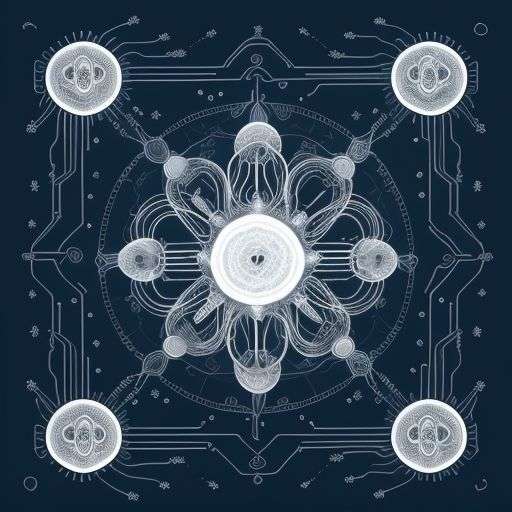
Neural implants represent the cutting-edge fusion of biology and technology. These devices, often linked to the AI revolution, are reshaping our understanding of human potential. By integrating with the brain, neural implants create a direct interface between technology and our neural pathways.
The functionality of neural implants is rooted in their ability to communicate with the brain’s neurons. Utilizing advanced algorithms and machine learning, these devices can interpret neural signals to control external technologies or even restore lost functions. This intersection of biology and technology is propelling us into the age of Humanity 2.0, where our capabilities are augmented by artificial intelligence.
As neural brain implants continue to evolve, they hold the promise of transforming not just individual lives but humanity as a whole. The potential applications span from enhancing cognitive abilities to treating neurological disorders, ushering in a new era where the boundaries between humans and advancing technologies disappear.
Revolutionizing Education: Accelerated Learning with Neural Upgrades
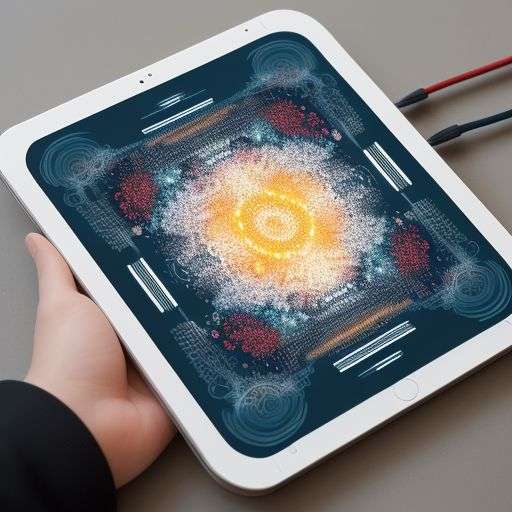
Revolutionizing education takes a giant leap forward with the integration of neural upgrades. In this AI revolution era, the transformation of human potential through neural brain implants is no longer a distant dream. The age of Humanity 2.0 is upon us, where learning is accelerated to unprecedented levels.
With neural upgrades, students can absorb information at an exponential rate, enhancing their cognitive abilities and memory retention. Imagine a world where complex subjects become up-loadable, easily comprehensible, and skills are mastered in a fraction of the time it used to take.
Educators are now exploring innovative teaching methods that leverage neural implants to customize learning experiences for individual students. This personalized approach ensures that each learner reaches their full potential by catering to their unique learning styles and preferences.
As we embrace this new frontier of education, the possibilities are limitless. Neural upgrades are set to revolutionize the way we learn, unlocking a plethora of opportunities for intellectual growth and development in the AI-driven world.
Unleashing Professional Potential: Precision Decision-Making with Neural Enhancements

In today’s AI revolution, neural brain implants are at the forefront of transforming human potential. These advancements herald the age of Humanity 2.0, where precision decision-making is no longer a distant dream but a tangible reality. By integrating neural enhancements into our cognitive processes, professionals can unlock new levels of efficiency and accuracy in their work.
Imagine a world where professionals can access a wealth of information instantaneously, process complex data effortlessly, and make decisions with unparalleled precision. Neural enhancements have the power to revolutionize industries, enhancing productivity and innovation across the board. With these cutting-edge technologies, professionals can elevate their skills to new heights, pushing the boundaries of what is possible in their respective fields.
As we delve deeper into the potential of neural brain implants, the future holds limitless possibilities for professionals seeking to optimize their performance. Embracing these advancements is not just about staying ahead of the curve but shaping a future where human potential knows no bounds.
Restoring Hope: Neural Implants in Neurological Rehabilitation
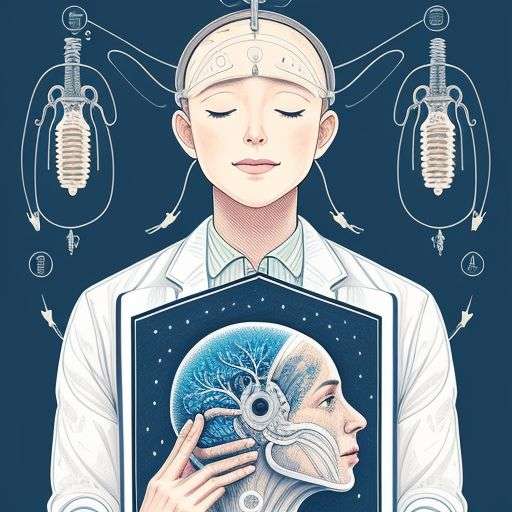
Neural implants have emerged as a beacon of hope in neurological rehabilitation, ushering in a new era of possibilities. In the midst of the AI revolution, these groundbreaking technologies are poised to transform human potential in unprecedented ways. By seamlessly integrating man and machine, neural brain implants hold the promise of enhancing cognitive functions, restoring mobility, and even enabling communication for those previously silenced by neurological conditions.
For example, an Alzheimer’s patient will be able to have AI restore their memories. Completely. And additionally, they will be able to access selective memories once impossible to recall but can be accessed for the first time, and permanently.
In the age of humans 2.0, the convergence of artificial intelligence and neural implants opens doors to a future where disabilities are no longer barriers but mere stepping stones. Imagine a world where individuals with spinal cord injuries can walk again, where stroke survivors can regain lost speech, and where those with neurodegenerative diseases can reclaim their independence.
As we look ahead to the profound impact of neural implants in neurological rehabilitation, one thing is clear – the future holds boundless opportunities for redefining what it means to restore hope in the face of adversity.
The Pioneers: The Race Towards Humanity 2.0

In the fast-paced world of technological advancements, Neuralink stands out as a pioneer in merging artificial intelligence with the human brain. Their innovative approach signifies a monumental shift towards enhancing human potential beyond current limitations. As part of the AI revolution, Neuralink’s neural brain implants are at the forefront of transforming how we interact with technology and each other.
But were you aware that Neuralink is not the only Brain-Computer Interface company? Others include:
- Precision Neuroscience
- Motif Neurotech
- Paradromics
- Kernel
- Emotiv
- Synchron
- Blackrock Neurotech
- Cognixion
- Neurable
- Muse
- NeuroSky
- Precision Neuroscience
- Ant Neuro
- Neurolutions
- NextMind
- BIOS
- BrainGate
- Compumedics
- Flow Neuroscience
- Integra Lifesciences
- MindMaze
- Natus Medical
- Advanced Brain Monitoring
- BitBrain Technologies
- BrainCo
With the advent of Humanity 2.0, the race towards integrating AI into our daily lives has never been more exciting. Brain-Computer Interface companies’ cutting-edge technologies pave the way for a future where humans can communicate directly with machines, revolutionizing various industries from healthcare to communication.
The implications of Brain-Computer Interface companies’ breakthroughs extend far beyond mere convenience, promising to redefine what it means to be human in an increasingly digital world. As we witness the fusion of technology and humanity, it becomes evident that the age of humans 2.0 is not a distant concept but a tangible reality shaping the future of our existence.
Ethical Considerations: Safeguarding Privacy and Security in a Connected World

In the AI revolution era, the integration of neural brain implants poses profound ethical considerations. Safeguarding privacy and security in a hyper-connected world becomes paramount. As we delve into the age of Humanity 2.0, the implications of such technological advancements spark debates on individual autonomy and data protection.
The advent of neural brain implants brings unprecedented opportunities for enhancing human potential. However, ensuring ethical usage to prevent exploitation and unauthorized access is crucial. Protecting personal privacy in an interconnected ecosystem requires robust cybersecurity measures and stringent regulations.
Balancing innovation with ethical responsibilities is imperative as we navigate this transformative landscape. Stakeholders must collaborate to establish ethical frameworks that prioritize privacy and security in AI-driven technologies. By addressing these ethical considerations proactively, we can harness the benefits of neural brain implants while upholding fundamental human rights in an increasingly interconnected world.
Beyond Enhancement: Exploring the Philosophical Implications of Neural Brain Implants
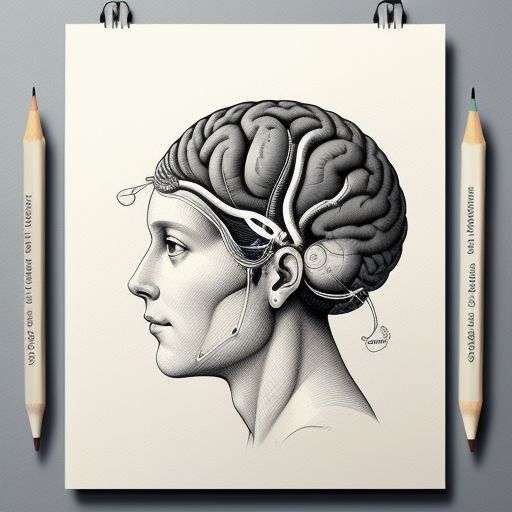
The advancement of neural brain implants goes beyond enhancing human capabilities; it delves into profound philosophical implications. As we delve into the AI revolution and the transformative potential of neural brain implants, we unravel the very fabric of what it means to be human in the age of Humanity 2.0.
These implants open up a world where human cognition intertwines with artificial intelligence, blurring the lines between biology and technology. The ethical considerations surrounding the integration of neural implants raise questions about privacy, autonomy, and the essence of consciousness itself.
In exploring these philosophical dimensions, we confront the impact of neural brain implants on identity, agency, and the nature of reality. The fusion of human minds with AI capabilities challenges our understanding of selfhood and the boundaries of human potential.
As we peer into a future shaped by neural brain implants, we are not merely witnessing technological progress; we are embarking on a journey that will redefine what it means to be human, in an AI-infused world.
The Road Ahead: Navigating the Challenges and Discoveries of the AI Revolution

In the journey of the AI revolution, navigating the challenges and discoveries ahead is crucial. The integration of neural brain implants is set to redefine human potential in ways previously unimaginable. As we step into the age of Humanity 2.0, these technological advancements open up a realm of possibilities.
Challenges arise as ethical considerations come to light. The implications of merging technology with the human brain spark debates on privacy, security, and individual autonomy. However, the discoveries outweigh the challenges, promising enhanced cognitive abilities, seamless connectivity, and potential medical breakthroughs.
The road ahead is paved with opportunities to reshape education, healthcare, and communication. All industries and quality of human life itself. Neural brain implants have the potential to revolutionize how we learn, treat illnesses, and interact with the world around us. Embracing these innovations requires a delicate balance between progress and ethical boundaries.
As we navigate through this transformative era, one thing is certain – the AI revolution, powered by neural brain implants, will reshape our world in ways we have yet to fully comprehend.

